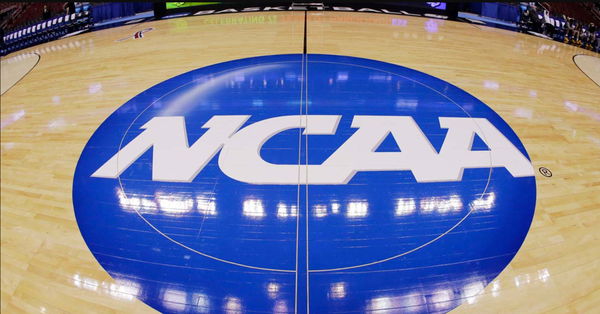

The court has issued a preliminary injunction against the NCAA. This move was taken in the lawsuit filed by the attorney generals of Tennessee and Virginia. The ruling allows upcoming athletes from high school or players looking to transfer to have communication with the NIL Collectives.
The order was pronounced by Judge Clifton L. Corker in the Eastern District Court of Tennessee on Friday after he had taken note of the issues of both sides in the hearing on February 13.
ADVERTISEMENT
Article continues below this ad
What was the order?
Judge Corker gave a decision in favor of the NIL Collectives reasoning that “without the give and take of a free market, student-athletes simply have no knowledge of their true NIL value.” He further went on to state this “consequential lack of knowledge that harms student-athletes.”

via Imago
November 25, 2023: Tennessee Volunteers signage during the NCAA, College League, USA football game between the University of Tennessee Volunteers and the Vanderbilt University Commodores at Neyland Stadium in Knoxville TN /CSM Knoxville United States – ZUMAc04_ 20231125_zma_c04_352 Copyright: xTimxGangloffx
The ruling also put a restriction on the NCAA and “all persons in active concert or participation with the NCAA” from asking the athletes to abide by the interim NIL policy, NCAA bylaws, or other things that prohibit the players from getting in a conversation / negotiation with the NIL compensations.
This will benefit athletes who can now be contacted by the NIL Collectives and can also help them know their monetary value before being recruited or during the process of transfer.
Read More: Michael Jordan’s “Rebellion” Displayed Distrust in Patient Phil Jackson in 1990
ADVERTISEMENT
Article continues below this ad
Now Collectives can contact the upcoming recruits and have a word with them. Corker in Friday’s decision further enunciated that “encouraging free and fair price competition in the NIL market by enjoining the NCAA’s NIL-recruiting ban will serve the public interest.” This was preceded by the NCAA launching an investigation against the Tennessee for NIL violations.
What was the case against Tennessee?
According to the New York Times, the NCAA had launched an investigation when the Tennessee quarterback Nico Iamaleava had used a private plane to reach Knoxville during his time as a recruit. The funds for the same were raised by boosters. Tennessee Attorney General Jonathan Skrmetti in his statement on Friday stated, “We will litigate this case to the fullest extent necessary to ensure the NCAA’s monopoly cannot continue to harm Tennessee student-athletes. The NCAA is not above the law, and the law is on our side.”
ADVERTISEMENT
Article continues below this ad
The NCAA too wrote a statement on the same day enumerating that “The NCAA fully supports student-athletes making money from their name, image and likeness and is making changes to deliver more benefits to student-athletes, but an endless patchwork of state laws and court opinions make clear partnering with Congress is necessary to provide stability for the future of all college athletes.”
Now it remains to be seen the next steps by the NCAA and how the athletes will respond to this decision.
ADVERTISEMENT
ADVERTISEMENT
ADVERTISEMENT
ADVERTISEMENT
